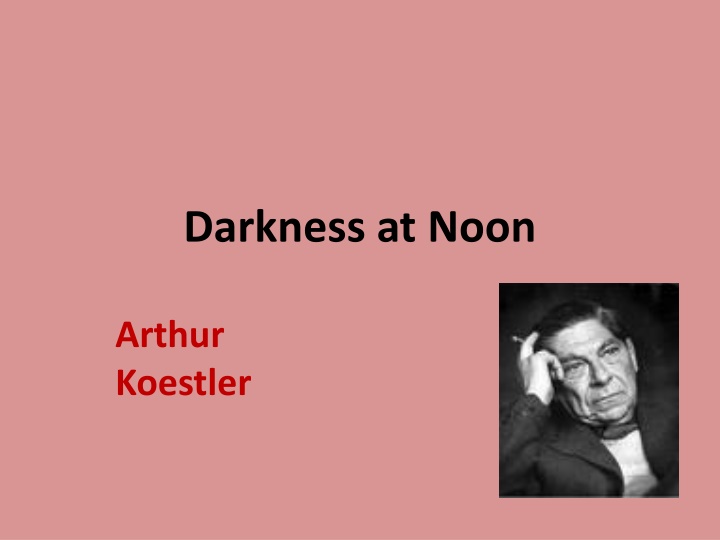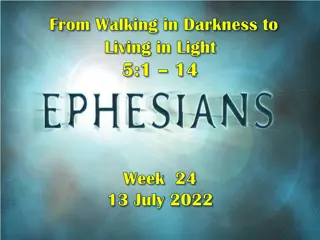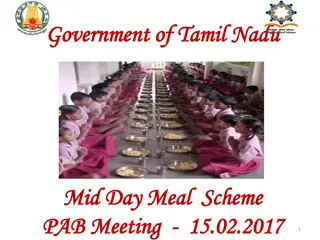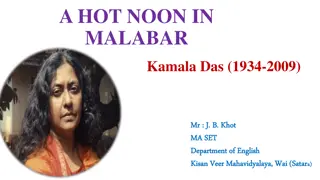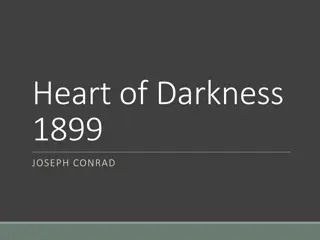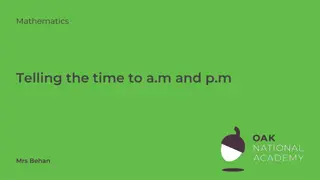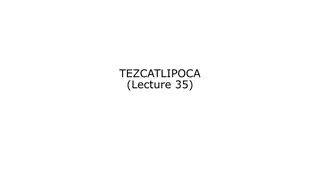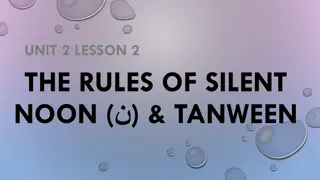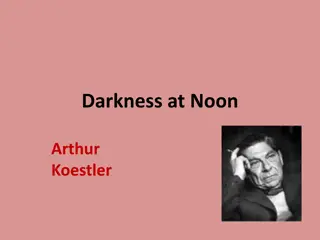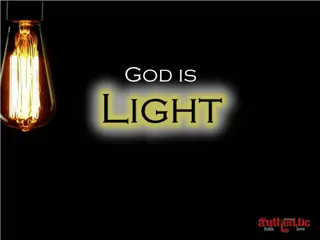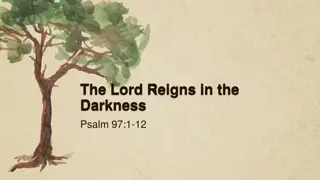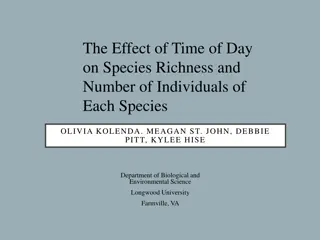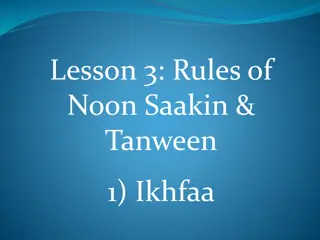Darkness at Noon
Arthur Koestler's "Darkness at Noon" delves into the aftermath of the Russian Revolution, exploring themes of succession, political trials, and personal betrayals. The novel follows protagonist Rubashov through three interrogations, reflecting on guilt, historical necessity, and the evaluation of the Party. Koestler's narrative weaves a complex web of relationships and power dynamics, drawing parallels to real-life figures such as Trotsky, Bukharin, Zinoviev, and Stalin. Through a metaphoric lens, the book provides a critical examination of collectivization and the intentions behind political actions in a totalitarian regime.
Uploaded on Feb 17, 2025 | 0 Views
Download Presentation

Please find below an Image/Link to download the presentation.
The content on the website is provided AS IS for your information and personal use only. It may not be sold, licensed, or shared on other websites without obtaining consent from the author.If you encounter any issues during the download, it is possible that the publisher has removed the file from their server.
You are allowed to download the files provided on this website for personal or commercial use, subject to the condition that they are used lawfully. All files are the property of their respective owners.
The content on the website is provided AS IS for your information and personal use only. It may not be sold, licensed, or shared on other websites without obtaining consent from the author.
E N D
Presentation Transcript
Darkness at Noon Arthur Koestler
Background Who was Koestler? Context: I. Russian Revolution of 1917 Succession to Lenin? -- NEP -- First Five Year Plan -- Politics of succession: Trotsky/ Bukharin/Zinoviev --Moscow Trials: civilization? The line ; intention
Succession Trotsky Bukharin Zinoviev Stalin
D at N: Dramatis personae Rubashov looks like Zinoviev and talks like Bukharin Ivanov- old friend; first interrogator Little Loewy and Richard agents betrayed by R Arlova secretary-mistress; also betrayed Gletkin new apparatchik; second interrogator Number One Stalin Old Man - Lenin
Metaphoric Context of the Book darkness at noon when? Three interrogations. Why? Context for Koestler Forced collectivization -- guilt and intention --historical necessity (?) -- the Party Evaluation
